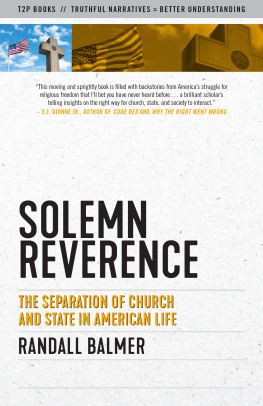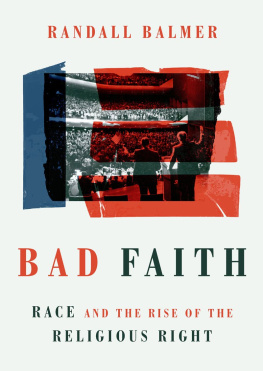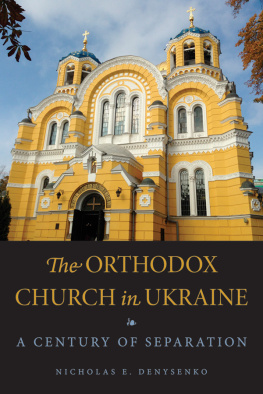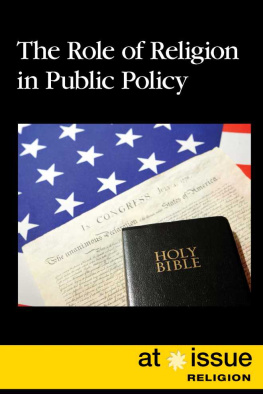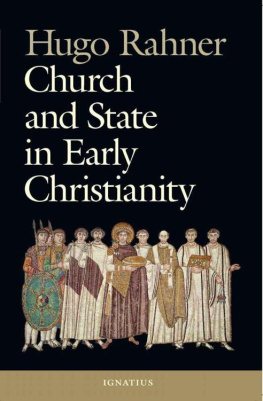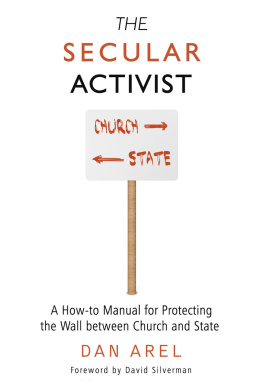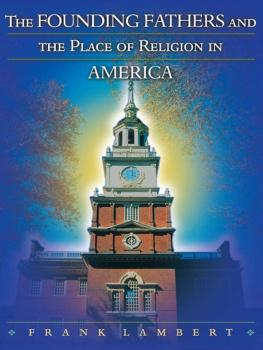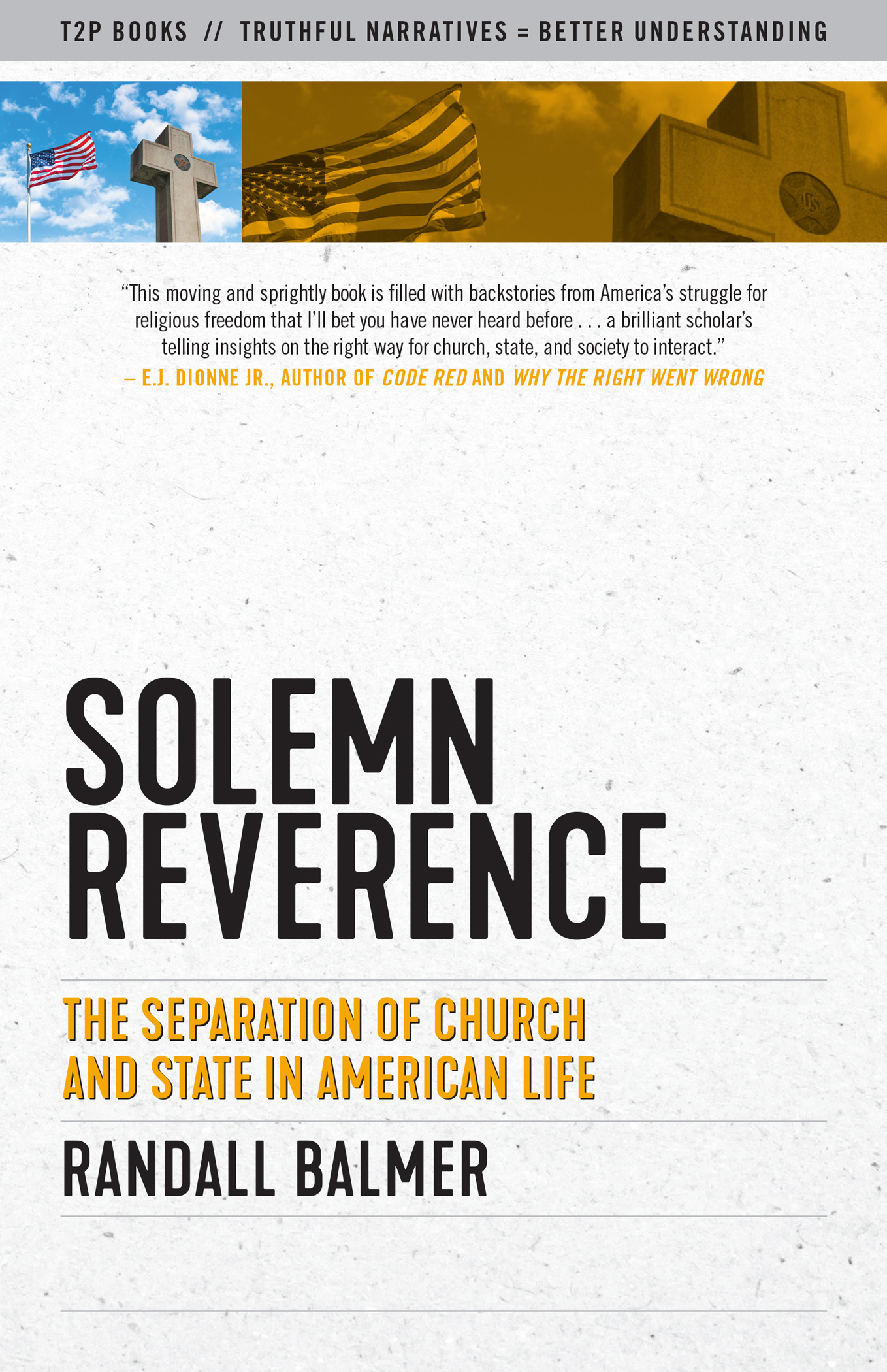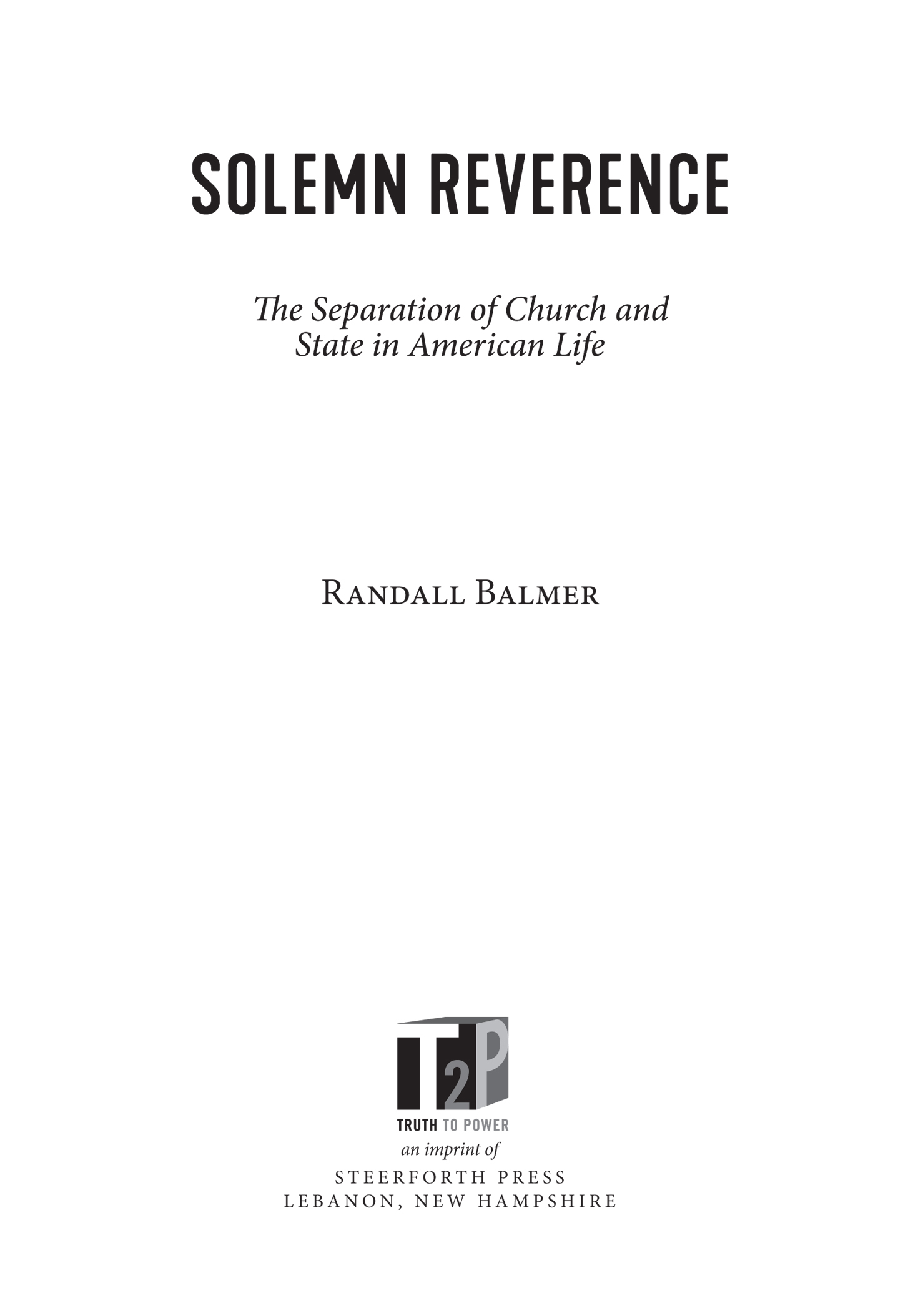This insightful and timely study highlights significant ideas and events related to the separation of church and state in the US from the colonial era to the present. Amid relentless debates and frequent misunderstandings on the subject then and now, Solemn Reverence sets the historical record straight.
This truth-telling book is the most succinct account now available of the history of governments relation to religion in the United States. If you must read only one book on this exceptionally important topic, this new work by the distinguished historian of American religion, Randall Balmer, is the one to read.
In a concise and wonderfully clear historical review of important episodes intended to defend the principle of church-state separation, Randall Balmer has provided religious Americans with a powerful reminder of their stake in the matter. The Baptist minister Roger Williams, long before the writing of the Constitution, warned churches not to get involved in the wilderness of worldly politics. American Baptists remained staunch champions of church-state separation until the end of the twentieth century. What they have risked in forgetting Williams warnings is only now becoming clear.
ALSO BY RANDALL BALMER
Evangelicalism in America
Redeemer: The Life of Jimmy Carter
First Freedom: The Fight for Religious Liberty
The Making of Evangelicalism: From Revivalism to Politics and Beyond
God in the White House: How Faith Shaped the Presidency from John F. Kennedy to George W. Bush
Thy Kingdom Come: How the Religious Right Distorts the Faith and Threatens America
Religion in American Life: A Short History
[with Jon Butler and Grant Wacker]
Protestantism in America
[with Lauren F. Winner]
Encyclopedia of Evangelicalism
Growing Pains: Learning to Love My Fathers Faith
Religion in Twentieth Century America
Blessed Assurance: A History of Evangelicalism in America
Grant Us Courage: Travels Along the Mainline of American Protestantism
The Presbyterians
[with John R. Fitzmier]
Mine Eyes Have Seen the Glory: A Journey into the Evangelical Subculture in America
A Perfect Babel of Confusion: Dutch Religion and English Culture in the Middle Colonies
Copyright 2021 Randall Balmer
ALL RIGHTS RESERVED
For information about permission to reproduce selections from this book, write to: Steerforth Press L.L.C., 31 Hanover Street, Suite 1, Lebanon, New Hampshire 03766
Cataloging-in-Publication Data is available from the Library of Congress
Ebook ISBN9781586422721
Maufactured in the United States of America
a_prh_5.6.0_c0_r0
I contemplate with solemn reverence that act of the whole American people which declared that their legislature should make no law respecting an establishment of religion, or prohibiting the free exercise thereof, thus building a wall of separation between Church & State.
T HOMAS J EFFERSON , January 1, 1802
for John F. Wilson
No church should undertake to impose its views on public agencies, and no public agency should single out for attack any church or church organization. Under the First Amendment our government cannot directly or indirectly, carelessly or intentionally select any religious body for either favorable or unfavorable treatment.
J OHN F. K ENNEDY , April 15, 1960
CONTENTS
PREFACE
The First Amendment, with its insistence on the separation of church and state, religion and politics, is under attack as never before. Congress shall make no law respecting an establishment of religion, or prohibiting the free exercise thereof, the initial clause of the First Amendment reads, and those sixteen words have served both government and faith remarkably well for more than two centuries. And yet various interests have sought in recent years to chip away at what Roger Williams, the founder of the Baptist tradition in America, called the wall of separation between church and state.
During the 2016 presidential campaign, for example, Donald Trump promised to repeal the Johnson Amendment, which prohibits the use of contributions to tax-exempt organizations, including religious groups, for the support of political candidates. The family of the Trump administrations secretary of education worked for decades to divert taxpayer money into private and religious schools, an enterprise made infinitely easier by the Supreme Courts misbegotten Espinoza v. Montana Department of Revenue decision in 2020. In defiance of the establishment clause of the First Amendment, the Religious Right generally has supported public prayer in public schools and the posting of religious symbols and sentiments in public places. And, both ironically and tragically, in 1979 the largest Baptist denomination in the country, the Southern Baptist Convention, effectively abandoned its historic role of patrolling the wall of separation between church and state.
I served as an expert witness defending the First Amendments prohibition against religious establishment. The case took place in Alabama after Roy S. Moore, chief justice of the Alabama Supreme Court, placed a granite monument emblazoned with the Ten Commandments in the lobby of the judicial building in Montgomery. Had Moore allowed other religious representations in that space or had he honored a request from the Alabama Atheists (both members, no doubt!) I would have had no objection. But Moore had insisted on the Ten Commandments only, a clear violation of the establishment clause of the First Amendment, which prohibits an establishment of religion.
My testimony then, and one reiterated in this book, is that the First Amendment is part of the genius of American life. It has protected the common good from religious factionalism, and it has ensured the integrity of faith from too close an alliance with the state.
Although unprecedented, the impetus for religious disestablishment as embodied in the First Amendment grew out of disparate impulses dating back at least to the Protestant Reformation of the sixteenth century. Martin Luther had emphasized the priesthood of believers, each individuals responsibility before God, which led almost inevitably (if not immediately) to the concession that everyone might approach God differently from his or her neighbor. The very splintering of Christianity after the Reformation demanded some sort of accommodation to its diversity. Several of the American colonies had done just that Thomas Jefferson himself cited the examples of New York and Pennsylvania in his

